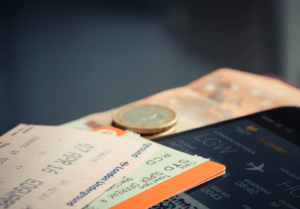We’ve all been there – waiting anxiously at the airport, only to be informed that our flight was delayed or canceled. It’s a frustrating experience that can leave you feeling helpless. But did you know that you might be entitled to compensation in such situations? To get more information, check this EC261/2004 regulation guide and learn your air passenger rights. In this blog post, we’ll explore the ins and outs of flight compensation and the legal obligations of airlines and share some tips on how to claim what you rightly deserve. So, let’s dive in.
What Is Flight Compensation?

Flight compensation refers to the financial reimbursement passengers may be entitled to receive from an airline due to a disrupted flight, such as delays, cancellations, or overbookings. The amount and eligibility for compensation vary depending on the circumstances and relevant laws governing the airline’s operations.
Types and Categories of Compensation
 Flight compensation can generally be divided into two main categories:
Flight compensation can generally be divided into two main categories:
- Monetary Compensation: This refers to the financial reimbursement passengers may receive due to a disrupted flight. The amount depends on factors such as the length of the delay, the distance of the flight, and the specific regulations governing the airline.
- Assistance and Care: Airlines are often required to assist passengers during lengthy delays or cancellations, including meals, refreshments, accommodation, and transportation to/from the airport.
The Legal Obligations of Airlines
Under international law, airlines have certain responsibilities towards their passengers when it comes to flight disruptions. Two of the most prominent regulations are:
- European Union Regulation (EC) No. 261/2004: This law applies to flights operated by an EU-based carrier leaving an EU member state or entering the EU. It outlines specific compensation amounts for delays, cancellations, and denied boarding incidents, depending on the flight distance and the length of the delay.
- Montreal Convention: This international treaty covers air travel worldwide and requires airlines to compensate passengers for damages caused by delays, cancellations, and overbookings. The compensation amounts are typically calculated based on the actual damages suffered by the passenger.
Tips for Claiming Flight Compensation
 If you believe you’re entitled to flight compensation, here are some useful tips to help you navigate the process:
If you believe you’re entitled to flight compensation, here are some useful tips to help you navigate the process:
- Gather relevant information: Keep records of your flight details, boarding passes, and any communication from the airline regarding the disruption.
- Know your rights: Familiarize yourself with the applicable laws and regulations governing flight compensation, such as EU Regulation 261/2004 or the Montreal Convention.
- File a claim: Contact the airline directly to file a claim, providing all necessary information and documentation to support your case.
- Seek assistance if needed: If the airline denies your claim or you encounter difficulties during the process, consider seeking help from a professional claims management company or legal expert.
In Conclusion
Understanding your rights and the concept of flight compensation is crucial for ensuring you receive the proper recourse in the event of a disrupted flight. By staying informed and following our tips for claiming compensation, you’ll be well-equipped to navigate the process and get what you rightfully deserve. So, next time you face a flight disruption, remember that knowledge is power, and you might just be entitled to compensation.



